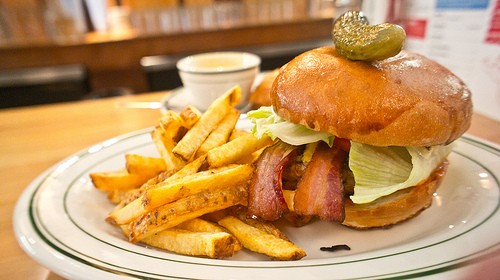
Excess intake of saturated fats during teenage years can increase the risk of breast cancer in women, according to study by Michigan State University.
Researchers found that girls who followed a high-fat diet during puberty were at greater risk of developing the disease.
While conducting experiments on mice, Sandra Haslam and her colleagues noticed that a diet high in saturated animal fat altered normal structure of the breast by promoting excess cell growth and making alterations in immune cells. The process ended up with the development of certain precancerous lesions (tissues that are more prone to cancer), and finally breast cancer.
Saturated fat intake was particularly associated with the development of an aggressive type of breast cancer that is basal-like in young women. These types of cancers are included in the triple-negative breast cancer types. Breast cancer cells testing negative for oestrogen receptors (ER), progesterone receptors (PR) and HER2 are termed as triple-negative breast cancer. It is not caused by the hormones oestrogen or progesterone. So tamoxifen (hormonal therapy) or Herceptin (therapy that target HER2 receptors) are less effective in treating this type of cancer.
"This is very significant because even though the cancers arise from random mutations, the gene signature indicating a basal-like breast cancer shows the overarching and potent influence this type of diet has in the breast," lead investigator of the study, Haslam, said in a statement.
A high-fat diet that doesn't lead to weight gain was also equally associated with an increased risk of cancer. "It's important to note that since our experimental model did not involve any weight gain from the high-fat diet, these findings are relevant to a much broader segment of the population than just those who are overweight," researcher Richard Schwartz expalined. "This shows the culprit is the fat itself rather than weight gain."
The findings have been published in the online issue of Breast Cancer Research.
Diet always has an important role in both prevention and treatment of breast cancer. Research conducted at Thomas Jefferson University Hospital in the US recently showed that restricting caloric intake during breast cancer treatment helped improve the outcome.











